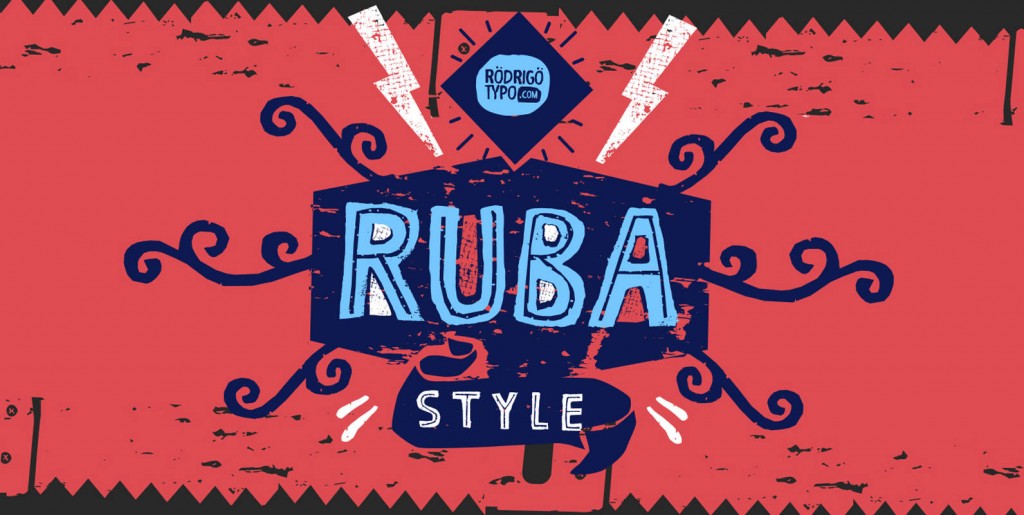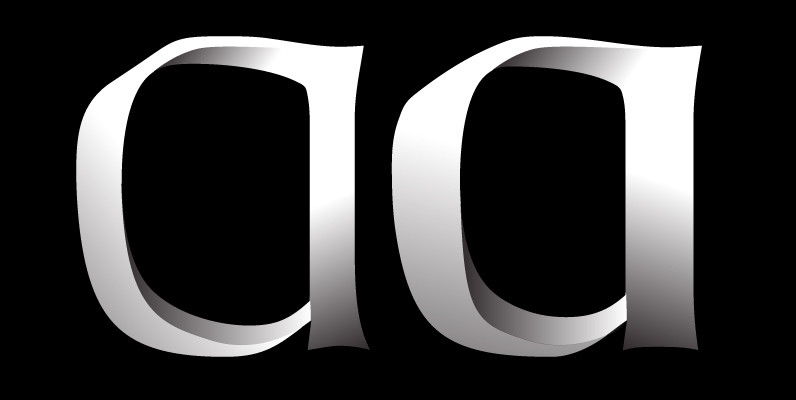Dwiggins Uncial is named in honor of William Addison Dwiggins (1880-1956), one of the premier graphic designers of the first half of the 20th century. He worked as an illustrator and calligrapher, while pursuing other artistic endeavors, such as his highly regarded marionette theatre. Personally, Dwiggins was a modest man, but his modernist book and type designs (many of which, such as Caledonia and Electra, are still in wide use) continue to influence and inspire contemporary designers.
This particular face, Dwiggins Uncial, is based on calligraphy Dwiggins created for a self-penned short story, which appeared as an insert in the book-arts publication The Dolphin (1935). This self-described “experimental uncial” lettering features rather unusual treatments of letterforms which combine manuscript calligraphy with modern idiosyncrasies.
Dwiggins Extras
Although Dwiggins illustrated a number of books using conventional media, he is best known for his method of illustration that uses a series of hand-cut celluloid stencils or what he called “machine ornaments.” With these stencils, Dwiggins (and other designers who use his ornaments) build-up repeated motifs and patterns into abstract designs and/or representational images which have a look that is uniquely Dwiggins’ own. Unlike other illustrators, Dwiggins’ style has not been commonly imitated and therefore diluted—his style is as distinctive today as it was 70 years ago. This set of decorative extras features 62 stencil and woodblock motifs adapted from abstract and representational Dwiggins designs.
Designed by Richard Kegler.

